During a first pregnancy, Braxton Hicks contractions may seem as elusive as Bigfoot, but especially for those who’ve had a baby before, they can sometimes be like an unwanted guest that just. won’t. go. home. What are Braxton Hicks contractions? When do Braxton Hicks start? How can parents tell the difference between Braxton Hicks and real labor contractions? All this, and much more are discussed in this blog post. Let’s get started!
NOTE: The following information should not be taken as medical advice, but from my experience as a childbirth educator, doula, and mother of three. I am not a medical professional. Please consult your care provider in regards to your healthcare.
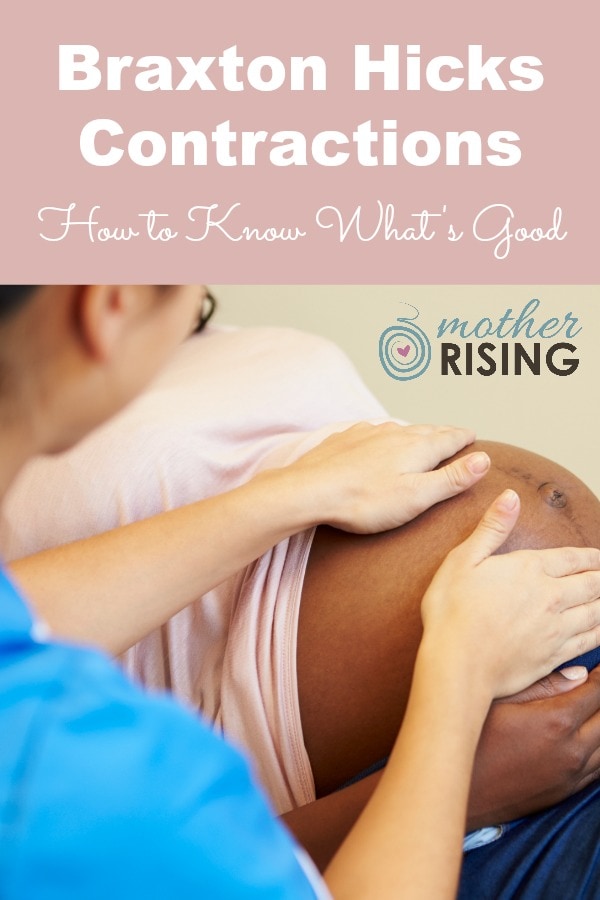
Braxton Hicks Contractions
Before we begin our discussion, it’s important to understand that every woman and every pregnancy is unique. Especially when it comes to Braxton Hicks, there’s no “normal” or right way for the uterus to contract. Everyone is different, including you!
What are Braxton Hicks contractions?
The term Braxton Hicks contractions was coined by a male doctor in the 1800s, but I imagine that women understood this phenomenon long before he named them after himself. Braxton Hicks contractions are uterine contractions that happen during pregnancy that are not labor.
Why do women experience Braxton Hicks?
Who knows. 😛
Seriously though, some people say these practice contractions help tone or strengthen the uterus before labor begins. However, I’m not sure if I’m on board with this theory. In my experience, the quality and quantity of a woman’s Braxton Hicks during pregnancy has nothing to do with a woman’s birthing experience.
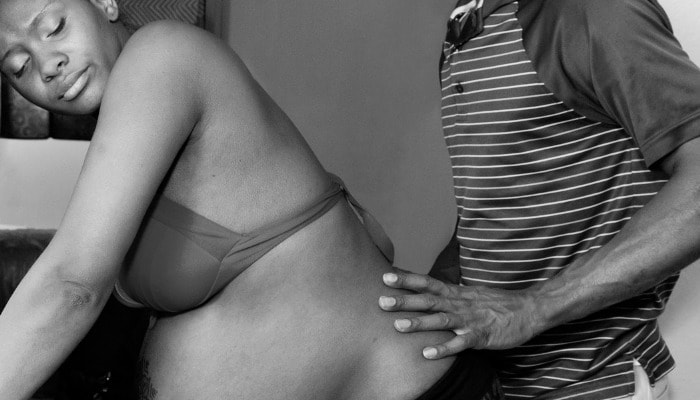
What do Braxton Hicks feel like?
For most women, Braxton Hicks contractions feel different than regular labor contractions.
Braxton Hicks contractions…
- Make the belly feel hard as a rock (think abs of steel).
- Can be on one part of the belly or all over, but typically not felt in the back.
- Can easily be confused with the baby. What some parents think is their baby’s butt could actually be a Braxton Hicks contraction!
- Are sometimes caused by fetal movement. When baby moves, kicks, or stretches it can cause the uterus to contract.
- Can be caused by a woman moving her body.
- Go unnoticed, especially with first time moms.
- Can feel painless.
- Can feel very uncomfortable, combined with lots of pelvic pressure.
- Sometimes can feel like period or menstrual cramps.
- For some women, are painful.
“For me, braxton hicks contractions feel like tightening and pressure at the top of my fundus.” Heather F., Mother Rising Community Member
“I felt a “wave” of tightening and relaxing starting at the top of my uterus working it’s way down, associated with a mild pain similar to light period cramps.” Sharon S., Mother Rising Community Member
“To me it feels like she’s trying to punch or kick her way out at the top of my tummy. It takes my breath away sometimes.” Susan C., Mother Rising Community Member

Braxton Hicks Contractions Symptoms
If you are experiencing the following symptoms, you’re likely feeling Braxton Hicks contractions, and not signs of labor. However, please consult with your care provider as they know much more about you than a website ever will.
Braxton Hicks contractions…
- Do not increase in length or strength over a period of time.
- Do not become closer together over a period of time.
- True labor contractions become longer, stronger, and closer together.
- Can be caused by dehydration. (Once the body is hydrated, they will likely go away. Stay hydrated!)
- Can be caused by stress, especially physical stress. (Drink a glass of water and put your feet up. They’ll likely go away after that.)
- Feel annoying.
- Can be caused by using the bathroom.
- Can happen during and after sex and orgasm.
- Are increased with nipple stimulation (sex, nursing, pumping, etc.).
The textbooks say that Braxton Hicks contractions should not be timeable, however, I disagree. Some women may experience Braxton Hicks contractions that, for at least a short period of time, have some sort of regularity about them. However, it’s important to remember, Braxton Hicks contractions do not get longer, stronger, or closer together over time.
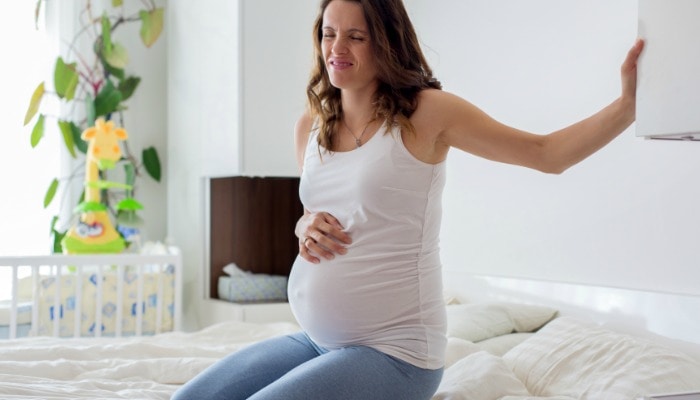
When do Braxton Hicks start?
Uterine contractions are not something that only happens during pregnancy. When not pregnant, what women call menstrual cramps are basically the same thing! Any time your uterus tightens or squeezes – is a contraction. Isn’t that interesting? However, women will typically begin to notice Braxton Hicks contractions some time during the second trimester.
During a first pregnancy, many women do not report experiencing Braxton Hicks contractions. However, because they can be painless, there’s a good chance she’s having them without even knowing.
“I remember I was lying on the table at a prenatal appointment, in the beginning of my third trimester. My midwife was trying to measure my belly but having some difficulty. She chuckled and then told me I was having a contraction. I had no idea! She put my hands on my belly and what I thought was my baby pushing outward, turns out was actually my belly contracting. I had been having Braxton Hicks contractions and had no idea.” Lindsey, Mother Rising founder
“I actually didn’t even know I was getting them until the nurse who was examining me noticed I was having one and pointed it out to me. She gently pressed on my belly, said it was very hard, and touch it! Then not even a few seconds later she told me to touch again and my belly was soft. She said it wasn’t hard from the baby but a contraction. I had no idea!” Amanda M., Mother Rising Community Member
During subsequent pregnancies, some women continue to only have the rare Braxton Hicks contractions, but many women have quite the opposite experience. In fact, for some women the more pregnancies they have, the more their uterus likes to contract. In these instances, women may be told they have an “irritable uterus”. This is such an excellent way to describe these symptoms, don’t you think?
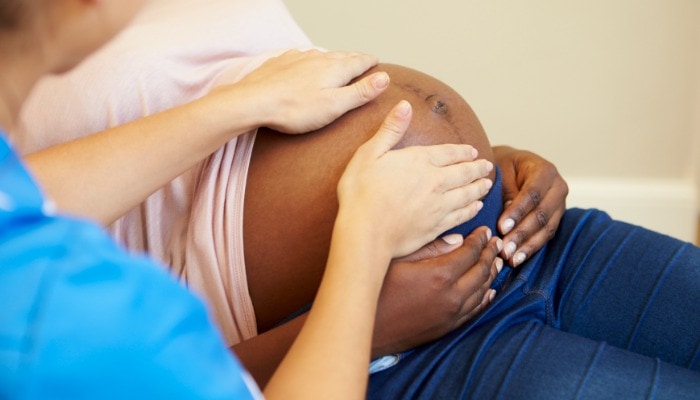
Are Braxton Hicks contractions normal?
Yes, Braxton Hicks contractions are normal. When it comes to contractions and pregnancy, there’s a wide range of “normal”. It’s normal to have them a lot, a little, or barely any at all.
Is it ok to not have Braxton Hicks contractions?
Many first time moms that are either not having these contractions or aren’t aware of them happening, often wonder if it’s ok to not experience Braxton Hicks contractions during pregnancy. Yes! There’s a wide range of “normal” in pregnancy, and what your uterus is doing or not doing is your “normal”.
The underlying question here, however, is probably along the lines of…
Will my body go into labor on its own?
Does my body know what to do? Or does it only know how to be pregnant?
Am I right, or am I right?
Yes, women who don’t experience Braxton Hicks contractions go on to experience perfectly normal labors. And then there are people like me who have one million Braxton Hicks contractions during pregnancy, but need Pitocin to get the baby out. The behavior of the uterus during pregnancy does not predict how labor will unfold.
If this is you, you may appreciate a few of my posts:
How to Give Birth Without Fear
How to Have an Empowered Natural Hospital Birth
Tips for Natural Birth That Will Decrease Your Pain
How to Rock a Long and Difficult Birth
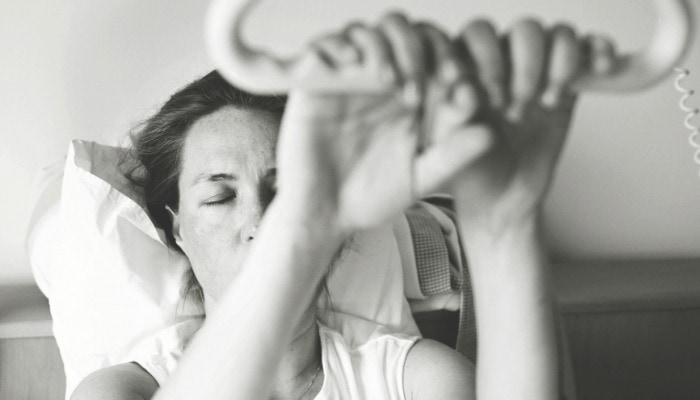
How long do Braxton Hicks contractions last?
Braxton Hicks contractions are typically less than a minute, around 30-45 seconds long, but for some they can last longer. Each episode of Braxton Hicks contractions will typically only last for a maximum of a handful of hours, but I’ve also heard of them lasting much longer (all day) for others.
It’s important to remember that Braxton Hicks contractions do not progressively get longer, stronger, and closer together over a period of time. In fact, they do the opposite. Braxton Hicks contractions get shorter, weaker, and further apart over a period of time.
TIP #1: If you think what you’re experiencing may not be Braxton Hicks contractions, but the real thing, check out my post about signs of labor. This may be it!
TIP #2: Some women report experiencing non-labor contractions all night long, but when morning comes, things fizzle out. Other women may experience non-labor contractions day after day, but don’t go into labor. If you are experiencing symptoms like this, please check out my post about prodromal labor.
How can I stop Braxton Hicks contractions?
Braxton hicks contractions can range from super annoying all the way to exhausting and disruptive, especially towards the end of pregnancy. If you are trying to stop Braxton Hicks contractions, try the following.
- Drink a glass of water. Braxton Hicks contractions can sometimes be caused by dehydration.
- Rest. Physical exhaustion can cause Braxton Hicks contractions. Because of this, you may notice an increase in contractions towards the end of a day and at night.
- Put your feet up and rest.
- Take a warm bath or shower.
- Nap or go to bed for the day.
- Drink a hot cup of tea, or other soothing beverage.
- Empty the bladder. A full bladder pushes on the uterus and depending on how ornery the uterus, can cause contractions. Go to the bathroom and see if if helps.
If you try all the above and your Braxton Hicks contractions do not go away, but instead become longer, stronger, and closer together, you may be in labor. Check in with your care provider to see what’s next. Your contractions may be close enough to to head to the hospital!

Can Braxton Hicks contractions turn into labor?
Yes, Braxton Hicks contractions can turn into labor contractions.
“The day before I gave birth to my first I had many Braxton Hicks contractions (caused by getting my membranes stripped) that went on and on, but didn’t turn into labor. That night I went to bed (still contracting) but later woke up to contractions that now were accompanied by back pain. As this new day progressed, contractions eventually got longer, stronger and closer together. At the beginning, it was unclear if my contractions were morphing into labor, but looking back, I now know that my Braxton Hicks contractions became true labor.” Lindsey, Mother Rising founder
If you experience any of the following symptoms along with Braxton Hicks contractions, you may be in labor.
- Nausea and vomiting
- Diarrhea
- Back pain
- Spotting
- Increase in discharge or mucus plug
- Cervical dilation
Also, if your Braxton Hicks contractions become longer, stronger, and closer together, you may be in labor.
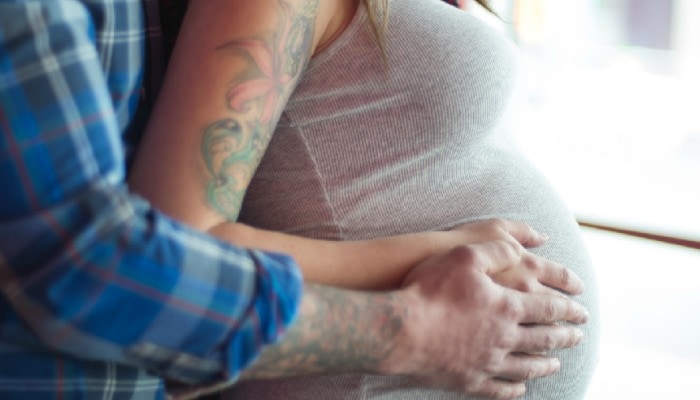
Braxton Hicks and Twins
If you are pregnant with twins, you may experience more Braxton Hicks contractions than with a singleton pregnancy.
“I remember experiencing Braxton Hicks WAY earlier with my twin pregnancy than with my first child. They began sporadically at about 25 weeks, and by 30 weeks any sort of physical exertion would cause them to begin. This stressed me out because I thought it was the beginning of labor, but thankfully I ended up going over 40 weeks! I did, however, take this as a warning sign from my body that I needed to pull back, sit down, and rest from what I was doing. I think by me being aware and sensitive to my body is partly what made me carry for so long.” Christi K.
Braxton Hicks vs. Preterm Labor
For those that are experiencing Braxton Hicks contractions before 37 weeks, you may be wondering how to determine if what you’re experiencing is preterm labor or normal “practice contractions”.
Preterm labor happens when a woman experiences regular contractions that change her cervix prior to 37 weeks.
Other Preterm Labor Symptoms
- bloody mucus (—->>> more about what do mucus plug’s look like)
- back ache
- loose stools
- abnormal pelvic pressure
- gush of fluid from vagina
- position changes don’t stop contractions
- contractions that get more intense and closer together
Preterm labor is a big deal, can sometimes be stopped, and because of that should be reported to your care provider ASAP. If you are wondering if what you’re experiencing is outside the range of normal, pick up the phone or go see your care provider. This is why they’re there!
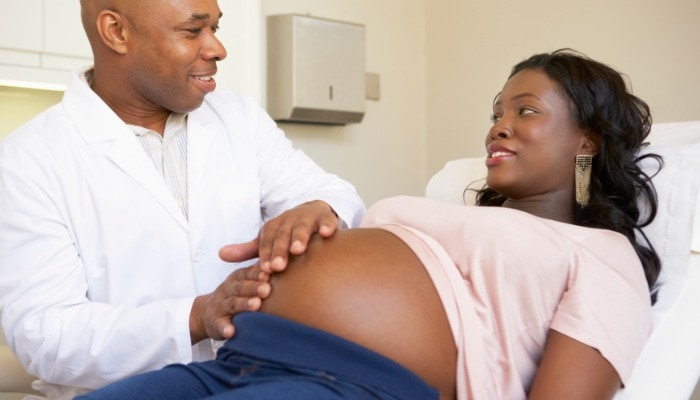
Share Your Braxton Hicks Contractions Story!
What about you?
Share your story! If you’ve experienced Braxton Hicks contractions (or not!), leave a comment and share your story with the Mother Rising community. We’d love to hear from you!
